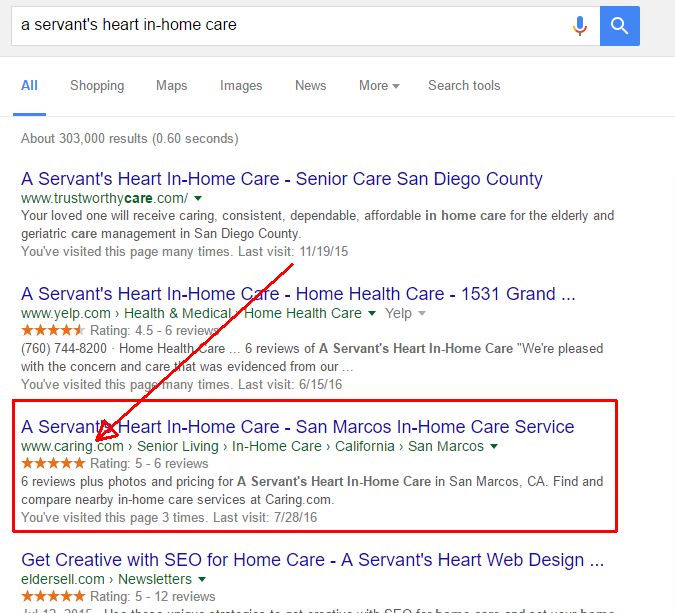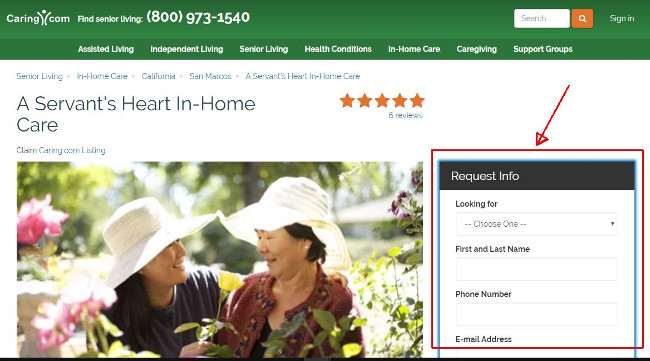How Directories Like Caring dot Com And Others Divert Leads That Should Be Yours
We see a growing problem, at least in the elder care industry, that we call “lead diversion directories”. That’s what we call “directory” websites that use your company brand name to sell leads to other home care companies.
Sometimes they use phony telephone numbers for the companies whose names they use. Sometimes they use “Request Info” online forms. The point is, they present your company brand name to the user as if the user will receive information about your company. Instead, they give those leads to other providers who pay for them.
How does this work? How can they get people who search for your company to go to to a directory website instead of your website?
Branded Search Results
When someone searches Google for your company name they are doing a “branded search”. That means that they are searching for your brand name.
When they do that, Google will return search engine results pages (“SERPs”) with your company home page AND pages on directory sites. Those directory sites include Yelp, Caring dot com and other sites that list your company in their directories.
(Yelp, by the way, does NOT divert searchers with phony lead gen tricks. They DO include the ads of companies who pay for Yelp ads right after your company info, on their directory pages. That seems fair to us because it’s not misleading.)
In many cases the websites of those directory companies rank more highly than, or nearly as high as, your own website does. That happens because some of these sites have very powerful search engine rankings in their own right. People may be drawn to click on those directory site listings in the SERPs for a number of reasons, including brand recognition.
Another factor is a psychological one: your company name may appear in SERPs for listings on Yelp or caring dot com or other directory sites with “ratings” or “review” stars. Searchers are drawn to, or “influenced by”, the “social proof” of online reviews. Because of that, searchers might even bypass your own listing in the SERPs and instead click on the directory site listings, if only to see what the reviews say about your company.
You can see this effect in the image below, in which the search was for the name of the in-home caregiving company that I owned in a nearby city. As you can see, Yelp and caring dot com both appear right after the company listing, and with review stars, as well.

Lead diversion Directory Page Structure
We call some of these directory sites (but not Yelp) “Lead diversion Directories”. We call them that because that’s basically what they are doing: using companies’ brand identities to “steal” leads that they then sell to competing companies, while never having obtained permission to use those brand identities in the first place.
Here’s an example of what we call a lead diversion page on the caring dot com site with a “Request Info” online form that will not result in a lead for the company listed (the URL for that page is: https://www.caring.com/local/in-home…care-solutions):

Of course, if you buy advertising on caring dot com or other directory sites at significant expense, then they’ll do you the favor of sending your leads to you instead of to your competitors.
We wrote caring dot com in May 2016 and asked them to take down that listing (we owned that company in the example until we sold it last year). Caring dot com has not replied, and has not removed the listing as of the date that this is being written, in August 2016.
The best solution to this problem is to optimize your own website to the greatest degree possible to make it more likely that searchers will click on your website in the SERP listings rather than the directories. You can do that through expert home care website design and recurring, effective search engine optimization.



